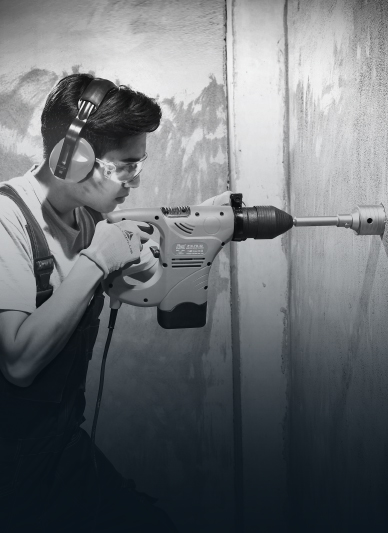In the world of construction, metalworking, and carpentry, a variety of tools are used to shape and refine materials. Among these tools, the steel chisel plays an indispensable role due to its versatility, strength, and reliability. Although often associated with masonry, it is used across numerous industries, proving its essential function in a variety of tasks. Whether it's for cutting, shaping, or detailing materials like stone, wood, or metal, the China steel chisel remains a tool that has stood the test of time.
One of the primary uses of a steel chisel is shaping and cutting hard materials, particularly stone and concrete. In masonry, it is commonly used to cut, shape, or trim stone, ensuring precise measurements and clean edges. The steel used in the chisel is incredibly durable, allowing it to withstand repeated use when striking against hard surfaces. Its ability to maintain sharpness even when working with tough materials like granite or marble makes it an essential tool for masons.
Similarly, in the construction of concrete structures, a steel chisel is often employed to create clean cuts or to break apart hard concrete when repairs or modifications are necessary. Its sharp edge enables workers to achieve the desired shapes or sizes with relative ease, helping to streamline tasks that require precision.
A steel chisel is also crucial in the removal of mortar or old materials from between bricks or stones. Over time, mortar can degrade, requiring replacement or reapplication to ensure the stability of the structure. In such cases, it is used to gently yet effectively remove the old mortar without damaging the surrounding stones or bricks. This function is particularly important in repointing masonry, where removing excess mortar is essential before applying fresh material.
Beyond its practical uses, a steel chisel is also a key tool in decorative stone carving. Artisans and sculptors rely on it to create intricate patterns and designs in stone or wood. With various shapes and sizes available, the chisel can be used for detailed engraving, shaping, or smoothing. Whether used in creating ornate architectural features or decorative statues, the precision and sharpness of the steel chisel allow artisans to achieve fine details that would be difficult to replicate with other tools.
In addition to stone, the steel chisel is used in woodworking to carve fine designs into timber, making it an essential tool for furniture makers, woodworkers, and sculptors. The control offered by it allows craftsmen to achieve delicate, intricate work with a level of precision that other tools might not provide.
While commonly associated with masonry and stonework, the Wholesale Stainless Steel Chisel is also an essential tool in metalworking. In industries such as shipbuilding or automotive repair, steel is often manipulated using it to remove rust, clean metal seams, or adjust various parts. The ability to handle both soft and hard metals gives it an advantage in applications where precision is critical.
One of the important characteristics of the steel chisel is its durability. The steel construction of the tool makes it resistant to wear and tear, allowing it to maintain its sharpness over extended periods of use. This durability ensures that professionals can rely on it to withstand the demands of heavy-duty work, from chiseling away at stone to trimming metal. Regular maintenance, such as sharpening, further extends the lifespan of the tool, ensuring its continued effectiveness.
Another key advantage of the Cast Steel Chisel Factory is the control it provides to the user. Unlike power tools, which can sometimes be difficult to manage and may result in inaccuracies, it allows workers to apply force directly and precisely to the material. The user can determine the depth and angle of each cut, ensuring the finished product meets the desired specifications. This level of control is especially important in applications that require intricate details or where a high level of accuracy is required.
The steel chisel is adaptable, making it useful for a wide variety of applications. Depending on the job, different shapes and sizes of chisels are available. Flat chisels are often used for general cutting or surface preparation, while pointed chisels are ideal for detailed work. Rounded chisels are useful for sculpting, and bullnose chisels are commonly employed for smoothing curved surfaces.


 English
English русский
русский 中文简体
中文简体

